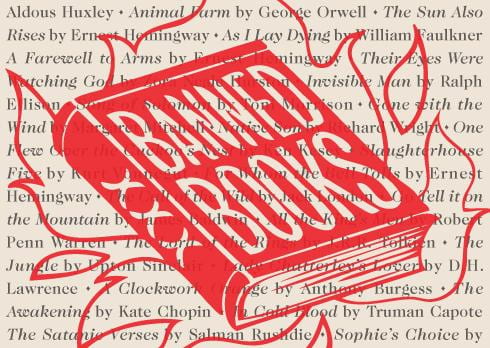Harriet the Spy? James and the Giant Peach? J.K. Rowling and Judy Blume? See below for banned books, burned books, forbidden books, a spirited defense of Huckleberry Finn, and a video contest.
Table of Contents
Just What Is It We Can’t Read? And Why Not?
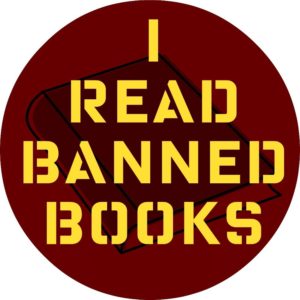 |
The American Library Association’s Banned Books has general information about banned and challenged books and year-by-year lists of challenged books.
Among the forbidden: Louise Fitzhugh’s Harriet the Spy (anti-authority), William Stieg’s Sylvester and the Magic Pebble (police portrayed as pigs), and Shel Silverstein’s A Light in the Attic (one of the poems advocates breaking dishes). |
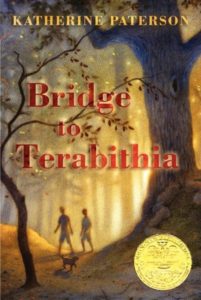 |
From BuzzFeed, 17 Banned Books You Read As a Child is an illustrated list that begins with the Harry Potter books (witchcraft) and proceeds through Bridge to Terabithia (profanity, disrespect of adults), Are You There, God? It’s Me, Margaret (religious doubt), James and the Giant Peach (Communist and racist overtones), and The Giver (belittles motherhood and family). |
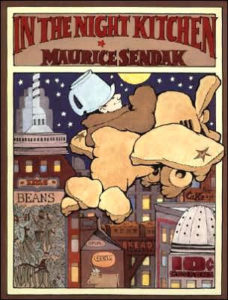 |
The Banned Books We Have Loved is a thoughtful essay on YA book banning, with a list of the most frequently banned books from the past twenty years. (Included: Catcher in the Rye, In the Night Kitchen, and The Chocolate War.) |
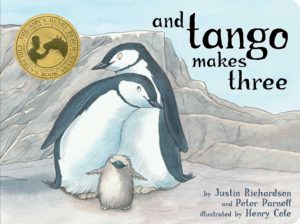 |
Alan Levinowitz’s Ban This Book is an “uncensored” reflection on censorship in children’s books, both overt and covert, that provides a lot of fuel for discussion. Targeted at older teenagers and adults – topics include sexual abuse and homophobia. |
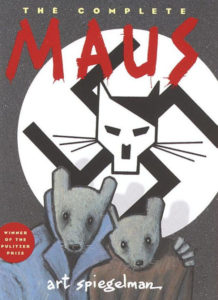 |
Banned & Challenged Comic Books is a collection of case studies on banned and challenged graphic novels, among them Alan Moore’s Watchmen, Art Spiegelman’s Maus, and Alison Bechdel’s Fun Home. |
| See Secrets Behind the Forbidden Books for an overview of the Vatican’s Index of Forbidden Books. (Among the condemned: Descartes, Hobbes, Voltaire, and Jean-Paul Sartre.) | |
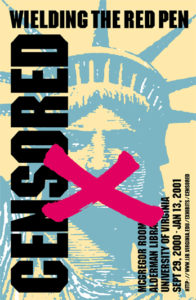 |
Censored: Wielding the Red Pen is a great online exhibit on the history and practice of censorship from the University of Virginia Library. Various sections cover Margaret Sanger and birth control; Thomas Bowdler, who took it upon himself to expurgate Shakespeare; wartime censorship; science and censorship; web filtering and the Internet; Hollywood and censorship; and more. |
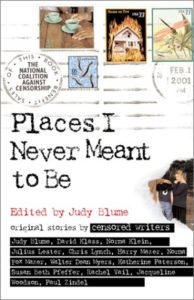
|
Edited and introduced by Judy Blume, whose works appear on many banned books lists, Places I Never Meant to Be (Simon Pulse, 2001) is a collection of twelve short stories by well-known writers who have been censored, among them Katherine Paterson, Julius Lester, Paul Zindel, and Walter Dean Myers. Each story is followed by the author’s reflections on censorship. For ages 12 and up. |
| Judy Blume Talks About Censorship has informational articles (including Blume’s “Is Harry Potter Evil?” from the New York Times) and a resource guide for people combatting book bans in their communities. | |
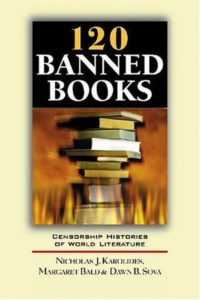
|
By Nicholas J. Karolides, Margaret Bald, and Dawn B. Sova, 120 Banned Books (Checkmark Books, 2011) is a fascinating (and appalling) history of the censorship of world literature. Discussed works are variously categorized as books banned on political grounds (All Quiet on the Western Front, I Am the Cheese, Animal Farm), religious grounds (Oliver Twist, The Satanic Verses, On the Origin of Species), sexual grounds (Madame Bovary, Ulysses, Judy Blume’s Forever), and social grounds (The Adventures of Huckleberry Finn, To Kill a Mockingbird, Anne Frank’s Diary of a Young Girl). For teenagers and adults. |
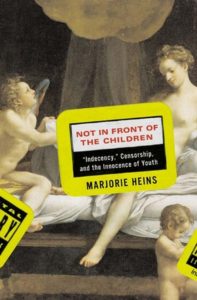
|
Marjorie Heins’s Not in Front of the Children (Rutgers University Press, 2007), subtitled “Indecency, Censorship, and the Innocence of Youth,” is a 400+-page history of attempts to protect children from “evil influences” (this dates back at least to the ancient Greeks; Plato worried about the corrupting effect of tragic poetry) and the modern rise of censorship. A scholarly approach to a complex problem. For older teenagers and adults. |
| The National Coalition Against Censorship is devoted to expanding public awareness of censorship and promoting free expression. The site includes resources for kids and info on the Kids’ Right to Read Project (KRRP). | |
| Beacon for Freedom of Expression has a history of censorship from Socrates to the present day. |
